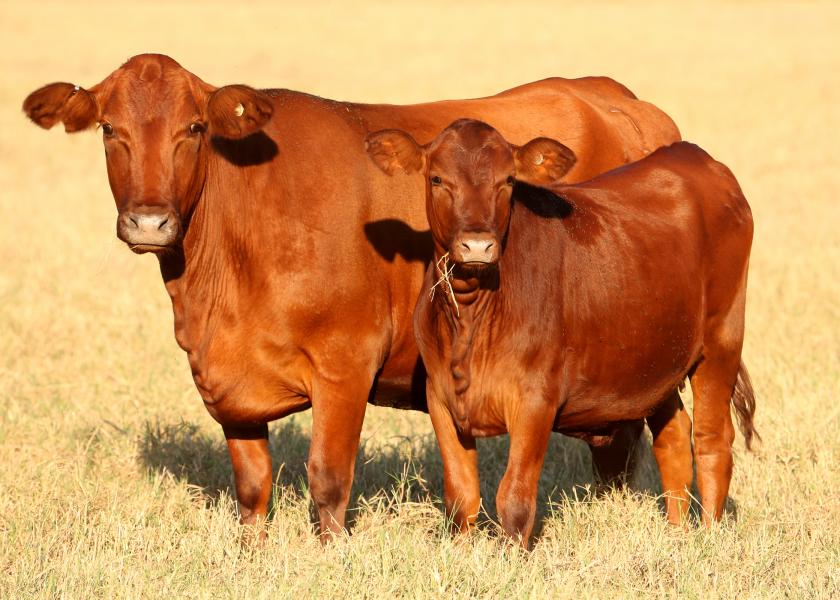American Red Program Launched For Commercial Cattlemen

The Red Angus Association of America and Santa Gertrudis Breeders International are collaborating to provide the beef industry with a unique blend of maternal traits, adaptability, growth and marbling – all packaged with a heat-tolerant, red hide – into a new program for the commercial beef producer called American Red.
The offspring of this crossbreeding program will be well suited for commercial producers who are seeking quality replacement females and steers that fit in the value-added segment of the beef industry.
Tom Brink, RAAA CEO, stated, “This innovative program has huge potential to impact the southern portion of the U.S. beef business, as well as heat-challenged areas where cattle are produced around the globe.”
American Red has been tested and proven at the King Ranch, in Kingsville, Texas. Numerous other breeders in the southern U.S. have also begun using this strategic cross to combat the harsh environment with marked success.
“This partnership emphasizes the value that the cross provides to an industry desperate for increased longevity, fertility, adaptability and efficiency,” added John Ford, SGBI Executive Director.
While the leadership at RAAA and SGBI are still finalizing key details, program specs for American Red will be as follows:
- To qualify for the American Red commercial cattle program and accompanying tag, steers and heifers in the same calf crop must be sired by registered Red Angus bulls averaging in the top 50% of the breed for the HerdBuilder index or registered Santa Gertrudis bulls averaging in the top half of the breed for maternal and growth traits.
- Breed percentages on qualified cattle will range from 25% to 75% Red Angus and 25% to 75% Santa Gertrudis, with a small allowance for other breeds. Most qualified cattle will be red. However, color is not an exclusionary requirement. Groups of cattle do not need to be fully red-hided to qualify.
- Dams of qualifiable calves must contain at least 50% of the reciprocal breed, meaning 50% or more Santa Gertrudis when the calves are sired by Red Angus sires, or 50% or more Red Angus when calves are sired by Santa Gertrudis bulls. To verify dam-side genetics, qualifiable herds will sign a verification form stating that at least 50% of the genetic makeup of the dams of calves to be qualified is from the reciprocal breed.
- The tag used for this program will be a unique, American Red-labeled tag issued by the RAAA. Tagging options include dangle tags or EID/panel tag combination-nested sets. Calves must be tagged on the ranch of origin.
Enrollments in the program will begin in February 2020. The program requires a yearly $50 enrollment fee and a $1.25 fee for each tag.
Producers with questions about the program should contact Chessie Mitchell, RAAA tag program coordinator, at tags@redangus.org or visit www.AmericanRed.org. More information about American Red will be released in the coming months.







